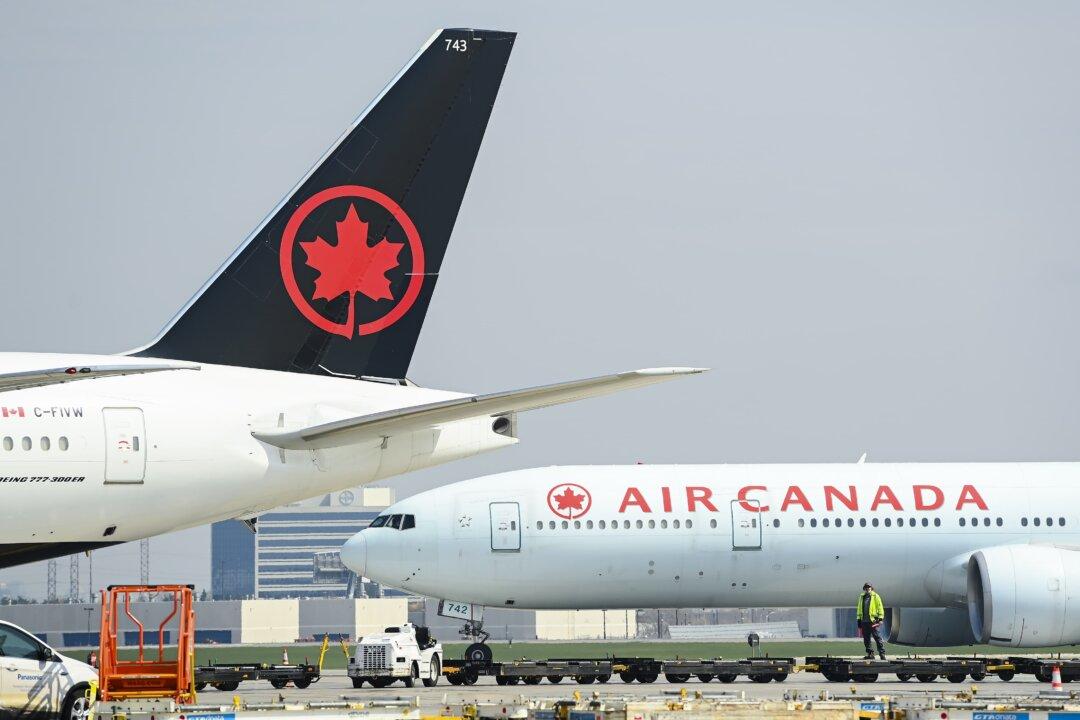Air Canada is cancelling more than 15 percent of its daily flights this summer as the industry struggles with “unprecedented and unforeseen strains” on its operations amid an overwhelming travel resurgence.
The move will see the airline cutting 77 round trips (or 154 flights) on average per day in the months of July and August. Air Canada is currently operating on average about 1,000 flights a day.





